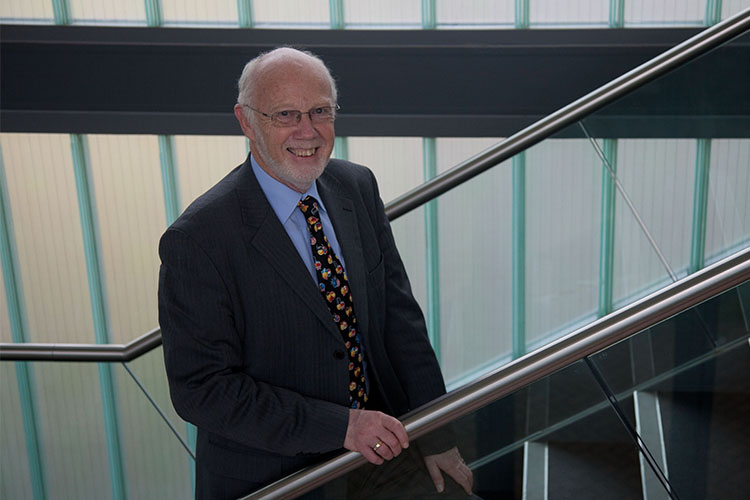Professor Roger Vickerman, a leading expert on large-scale transport infrastructure projects, explains why a bridge between the UK and Europe is technically possible but that, as past studies have shown, the economics for such a project are unconvincing.
‘The recent, probably off-the-cuff, proposal by Foreign Secretary Boris Johnson for a bridge across the Channel made for good politics and aroused media excitement, but (as so often) demonstrated a lack of understanding of both history and economics.
‘The bridge idea goes way back to the early days of cross-Channel projects in the early 19th century, but was still alive in 1985 when of the four projects considered in the competition to build a fixed link, two involved bridges. Of these, the more likely was a compound bridge-tunnel scheme with a tunnel section across the main shipping lanes in the middle of the Channel.
‘This is similar to the Hong Kong-Zhuhai-Macau bridge (HKZMB) in the Pearl River Delta region of China. This 29.6 kilometre crossing includes 22.9km of bridges and a 6.7km tunnel in a total length including access roads of 55km, at an estimated cost of RMB110 billion (£12.3 billion). At the time of the Channel fixed-link competition in 1985 the bridge or bridge-tunnel schemes were estimated to be likely to cost between 2.5 to 3 times the cost of the rail tunnel. But the perceived advantage of these schemes, as with the HKZMB, is that they provide for a drive-through road link. As well as the HKZMB, a new high-speed rail link is being completed between Hong Kong and the Mainland China network at a further cost of HKD84.42 billion (£7.74 billion).
‘The pressure of the road lobby (not to mention Margaret Thatcher’s oft-cited dislike of trains) led to a clause in the original Concession Agreement for the Channel Tunnel, whilst granting a monopoly until 2020, requiring Eurotunnel to bring forward an assessment of a drive through option by 2010.
‘A bridge is technically feasible and simple objections such as potential ship strikes or closure due to wind can be solved, albeit at a cost. But this is where the economics comes in. The 2010 reassessment concluded that there was no economic case for a second crossing in the foreseeable future. There remains significant capacity on both the through rail and road vehicle shuttle services to meet expected demand. Traffic has failed to meet the levels expected in the 1985 competition. And prospects for cross-Channel traffic, passenger and freight, in a post-Brexit world remain uncertain.
‘It is unlikely that in such a scenario the private sector would be as willing as in the heady days of global liquidity in the 1980s to consider bankrolling the project without significant public-sector guarantees. Public budgets in the UK and France do not have the scope to fund such a project, given the alternative demands. Note that only a week after extolling the virtues of a bridge Boris Johnson is now demanding significant extra funds for the NHS.
‘Is this a project for the Chinese? The price tag of the HKZMB seems quite cheap, though the human cost in terms of reported accidents is high, it is unlikely they could get the same value here. And where is the demand for the link. HKZMB lies at the heart of a region of 60 million people where promoting the economic integration of the two Special Administrative Areas of Hong Kong and Macau with mainland China is a priority. The immediate hinterlands of the Channel do not provide such a context.
‘Big infrastructure projects do not exist in isolation from the wider economic context. In the debates over the Channel Tunnel fears were expressed that Kent would be concreted over if traffic reached the levels projected; Operation Stack gets us close. Maybe a second link providing for drive-through, would get us even closer to that, but maybe a really imaginative project would look for a route that didn’t channel all the traffic through the bottleneck of Kent. And don’t forget, in the 19th century there was a proposal for a rail tunnel to New York.’
Professor Roger Vickerman is Emeritus Professor of European Economics. His research over the last 40 years has focused on major infrastructure projects, such as the EU’s Trans-European Networks and high-speed rail and he currently serves on the Economics Advisory Panel to HS2 Ltd. He directed a major Anglo-French research project into the Channel Tunnel at the time of its construction and also produced a report marking ten years of the Channel Tunnel and its economic impact in 2005.
-ENDS-
Article by Dan Worth, University of Kent Press Office
——->

